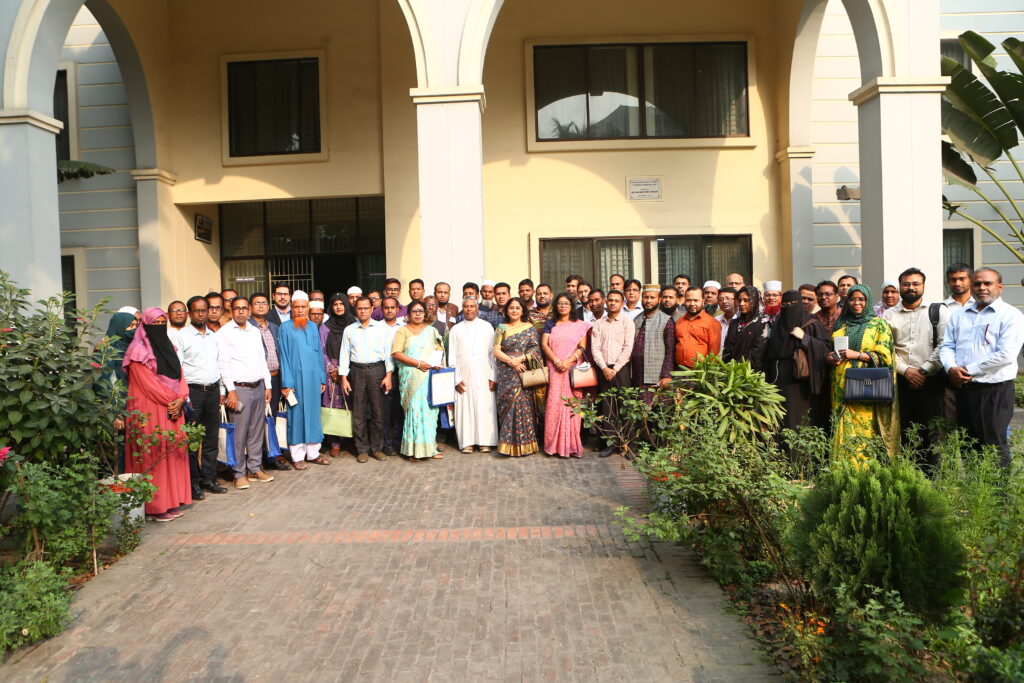
Arigatou International and Globethics Lead Roundtable on Navigating the Development and Humanitarian Funding Crisis
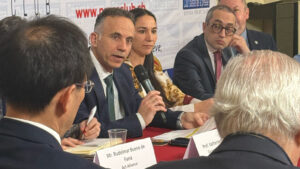
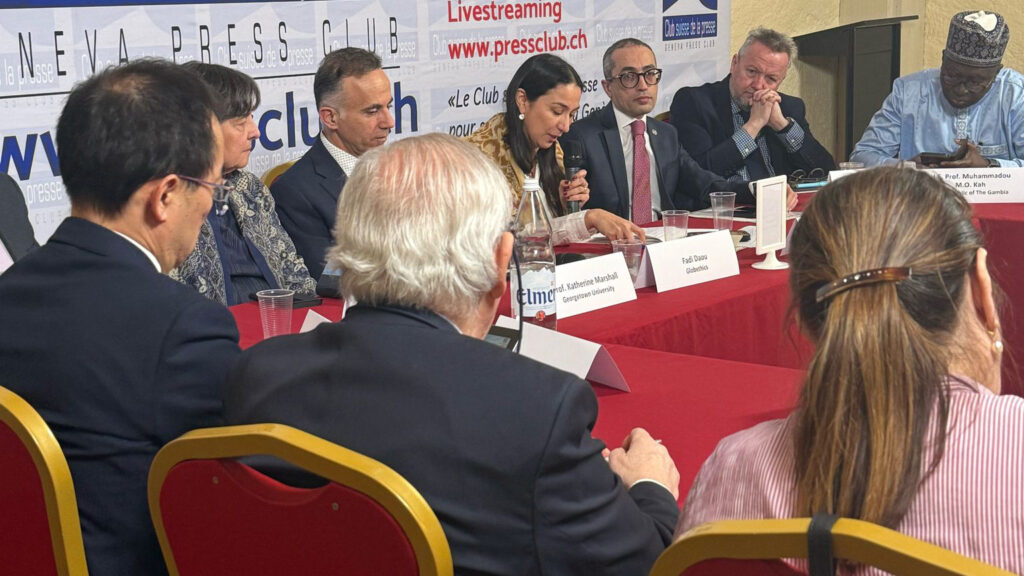
On March 5, Arigatou International and Globethics hosted a roundtable discussion at the Geneva Press Club, bringing together key stakeholders to address the ethical challenges and strategic responses to the ongoing funding crisis in the humanitarian and development sectors.
The event, Navigating the Development and Humanitarian Funding Crisis: Ethical Implications and Strategic Responses, gathered representatives from CSOs, UN agencies, diplomats, and humanitarian experts to discuss the far-reaching consequences of budget cuts and shifting donor priorities. As major donors, including the USA, Germany, Switzerland, and the UK, have significantly reduced their contributions to global aid, participants examined how to uphold ethical standards while ensuring the protection of vulnerable populations.
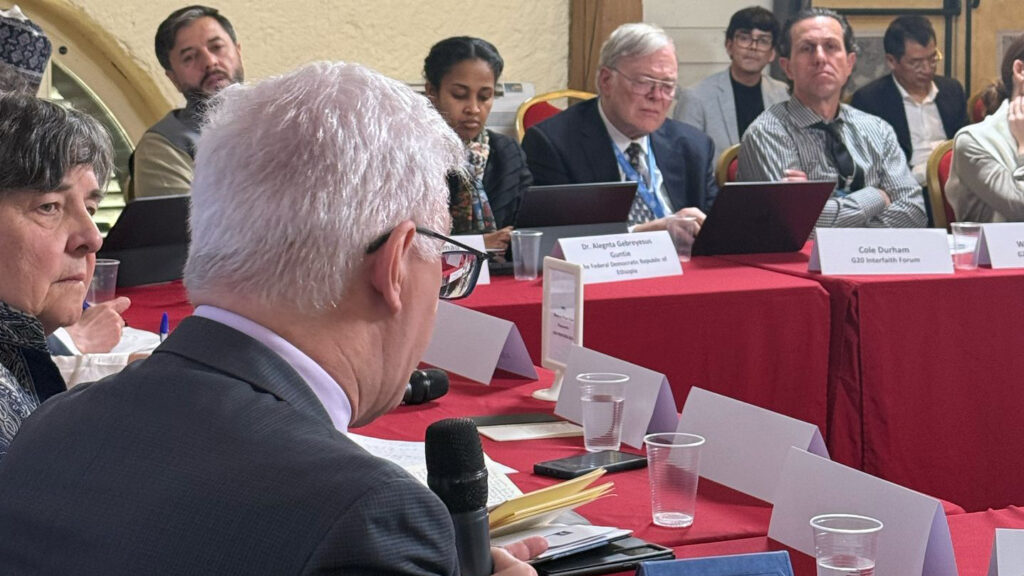
A key takeaway from the discussion was the urgent need to rethink funding models. With traditional aid structures proving unsustainable, experts emphasized the importance of diversifying financial sources, engaging private sector stakeholders, and strengthening local solutions to build long-term resilience. The conversation also underscored the necessity of balancing immediate humanitarian responses with sustainable development strategies to prevent long-term setbacks in human rights and peacebuilding efforts.
Collaboration emerged as another critical theme, with speakers calling for collective action rather than competition for scarce resources. The discussion highlighted the ethical responsibility of humanitarian and development actors to maintain transparency, accountability, and commitment to their core missions despite financial pressures.
The roundtable concluded with a strong call for bold, collective action to ensure that ethical principles remain at the heart of humanitarian efforts. As the crisis deepens, innovative financing, stronger partnerships, and a commitment to human rights will be essential in shaping the future of global aid.
For a full summary of the discussion, read the Geneva Press Club’s press release here: Press release “Navigating the Development and Humanitarian Funding Crisis”
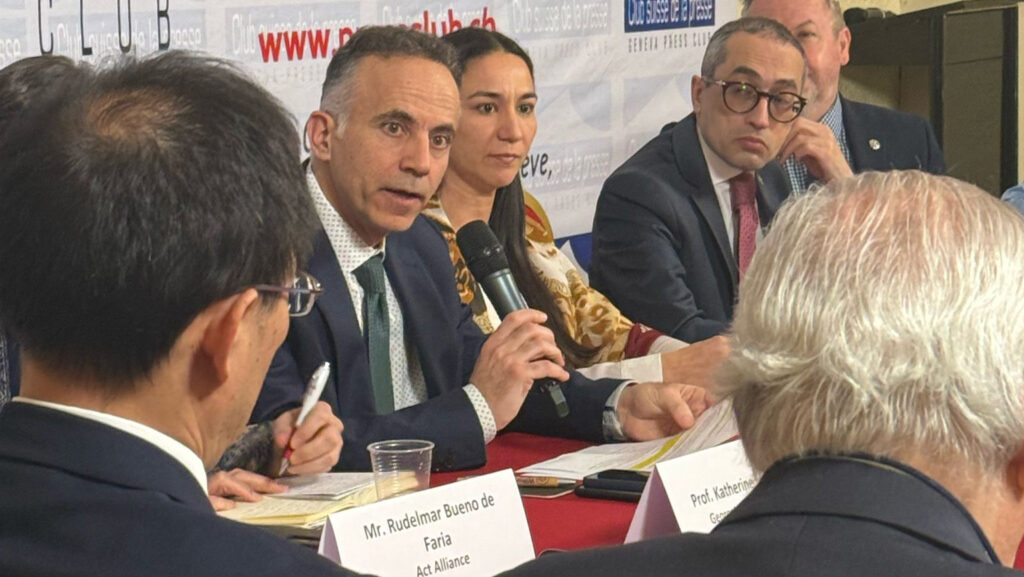
The post Arigatou International and Globethics Lead Roundtable on Navigating the Development and Humanitarian Funding Crisis appeared first on Ethics Education for Children.
Convocatoria de interés: Evento mediático de lanzamiento del satélite Biomass en el Puerto ...
Press Release N° 10–2025
Se invita a los representantes de los medios de comunicación que indiquen por favor su interés en asistir a un evento mediático en el Puerto Espacial Europeo de la Guayana Francesa, con motivo del lanzamiento del satélite Biomass de la Agencia Espacial Europea en un lanzador Vega-C.

Ethics Education Expands Its Reach in Kenya – Phase 2 of the Ethics Education Fellowship Launches
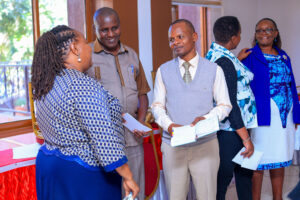
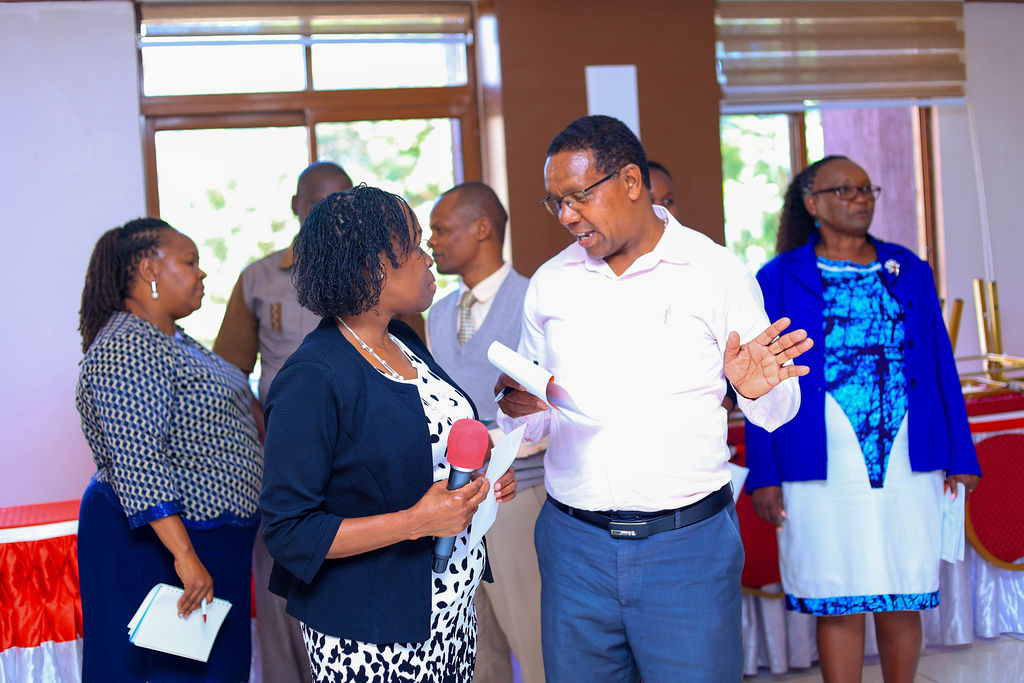
A training workshop took place on the outskirts of Nairobi, from 26 February to 2 March 2025, bringing together 32 educators from Kitui and Murang’a counties. Jointly organized by the Ministry of Education of Kenya, the Kenya National Commission for UNESCO, and the Kenya Institute of Curriculum Development, this workshop is a key component of the second phase of the Ethics Education Fellowship. It is expected that in this phase, the program will reach 800 children across four schools.
The participants, representing primary and secondary schools, teacher training colleges, and universities, were joined by key officials from the Ministry of Education, Kenya, including the Department of Teacher Education, Department of Planning, Department of Quality Assurance, and the Department of Partnerships and East Africa Affairs. The workshop was also attended by representatives from the Kenya National Cohesion and Integration Commission, the Kenya National Commission on Human Rights, and the Inter-Religious Council of Kenya.
Mr. Elyas Abdi, Director General of Basic Education, Ministry of Education, emphasized the foundational role of ethics and values in national development. “Kenya will achieve development by embracing values and ethics, which are key to building a better future,” he affirmed in an interview with MyGob newspaper. He underscored the alignment of this initiative with Kenya’s Vision 2030 and Sustainable Development Goal 4.7, which promotes education that fosters peace, global citizenship, and cultural understanding.
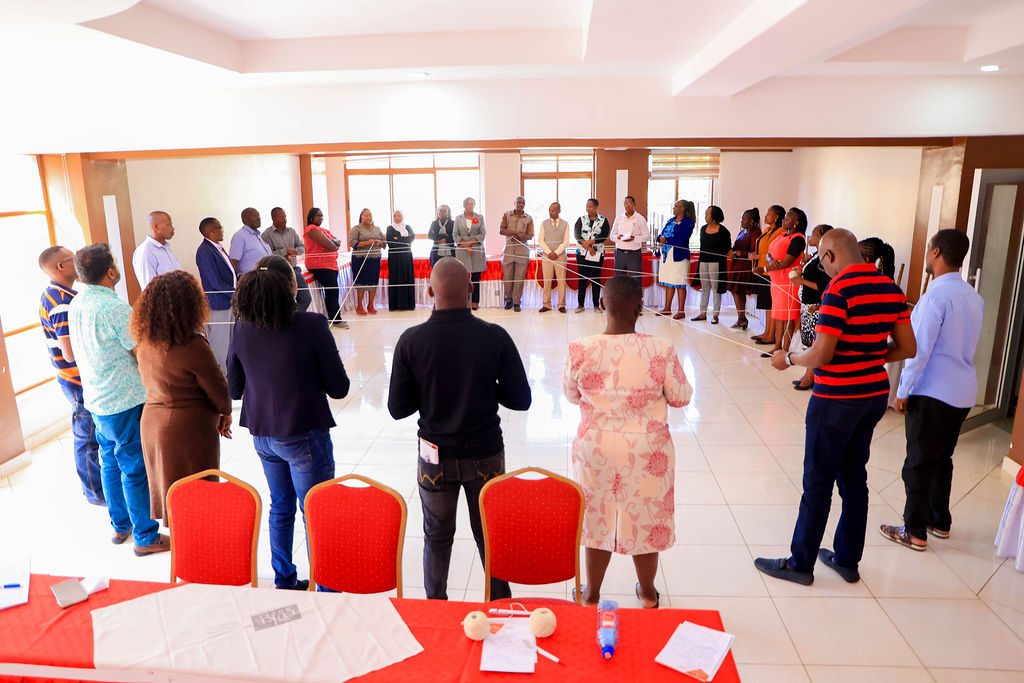
The Opening Ceremony set the tone for a powerful journey of reflection, dialogue, and transformation. Distinguished speakers offered compelling insights on the role of ethics in strengthening education and empowering students to navigate contemporary global and social challenges.
Mr. Kilian Nyambu, Deputy Director of Public Education and Engagement at the National Cohesion and Integration Commission, highlighted the essential role of ethics in building a unified and peaceful society. He noted that ethics education can help address the root causes of social and political challenges, while promoting national cohesion.
Mr. Suchith Abeyewickreme, Senior Technical Lead for Ethics Education for Children at Arigatou International, applauded Kenya’s steadfast commitment to values-based education. He spoke of ethics as a golden thread that can be woven into curricula, extracurricular activities, and everyday school life—cultivating empathy, responsibility, and critical thinking among learners.
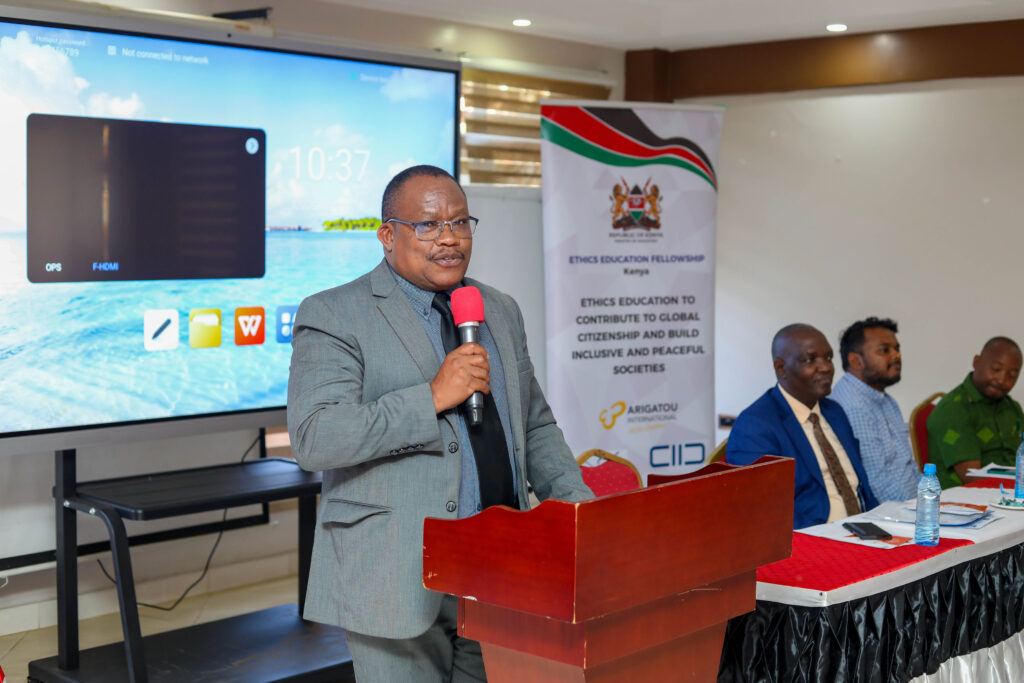
Dr. James Njugu, Acting Secretary General of the Kenya National Commission for UNESCO, celebrated the successes of Phase 1 and encouraged educators to work collaboratively to reimagine and renew the educational experience. He emphasized the importance of equipping teachers with the tools to support the aspirations of today’s youth and future generations.
Dr. Sam Ngaruiya, speaking on behalf of the Director General of Education, officially inaugurated the workshop. He reaffirmed the Ministry’s vision of nurturing ethical, responsible citizens capable of addressing both local and global challenges through education.
The five-day gathering was facilitated by Ms. Mary Kangethe, Kenya National Commission for UNESCO; Ms. Dorah Kitala, Ministry of Education; Ms. Olivia Opere, School of Education, Kenyatta University; and Mr. Suchith Abeyewickreme, Ethics Education – Arigatou International. A special highlight of the week was the return of educators from Phase 1, who served as support facilitators, generously sharing their experiences and insights to guide the new cohort.
“This initiative creates opportunities for educators to foster safe learning environments and build skills for healthy relationships and social responsibility,” stated Ms. Kangethe.
The Ethics Education Fellowship program is made possible through the collaborative efforts of Arigatou International, the Guerrand-Hermès Foundation for Peace, the International Dialogue Centre (KAICIID), the Higher Committee of Human Fraternity.
Arigatou International extends its sincere appreciation to all partners, facilitators, and participants for their unwavering leadership. Congratulations to the newly trained educators who are taking bold steps to embed ethics education into their classrooms and communities across Kenya.
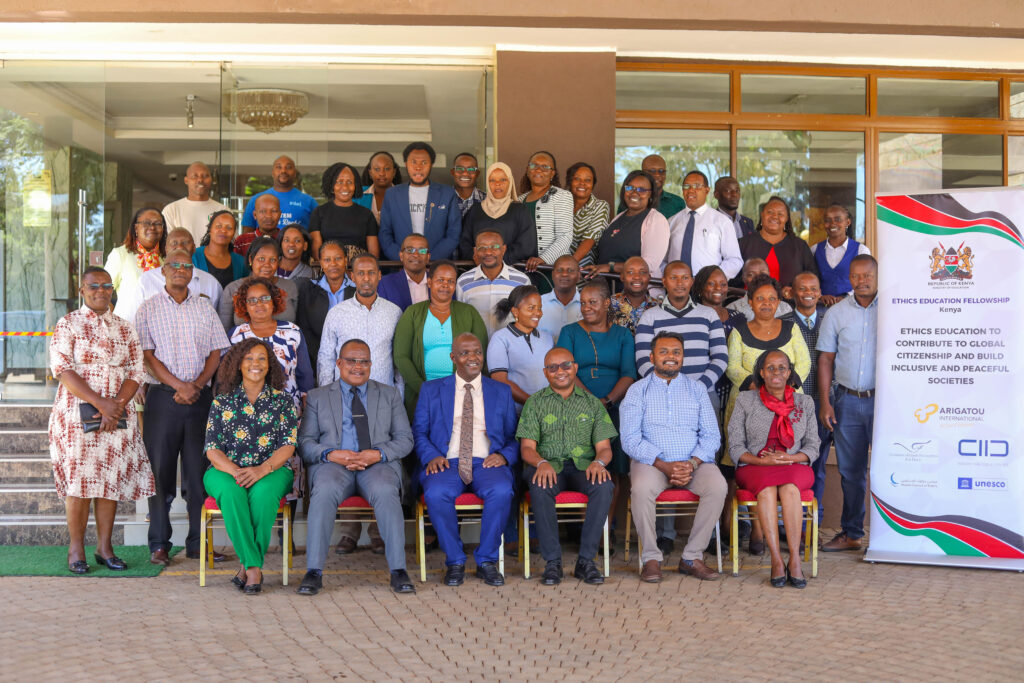
The post Ethics Education Expands Its Reach in Kenya – Phase 2 of the Ethics Education Fellowship Launches appeared first on Ethics Education for Children.

National Training of Teachers Kickstarts the Second Phase of the Ethics Education Fellowship in Bangladesh
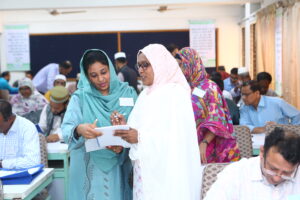
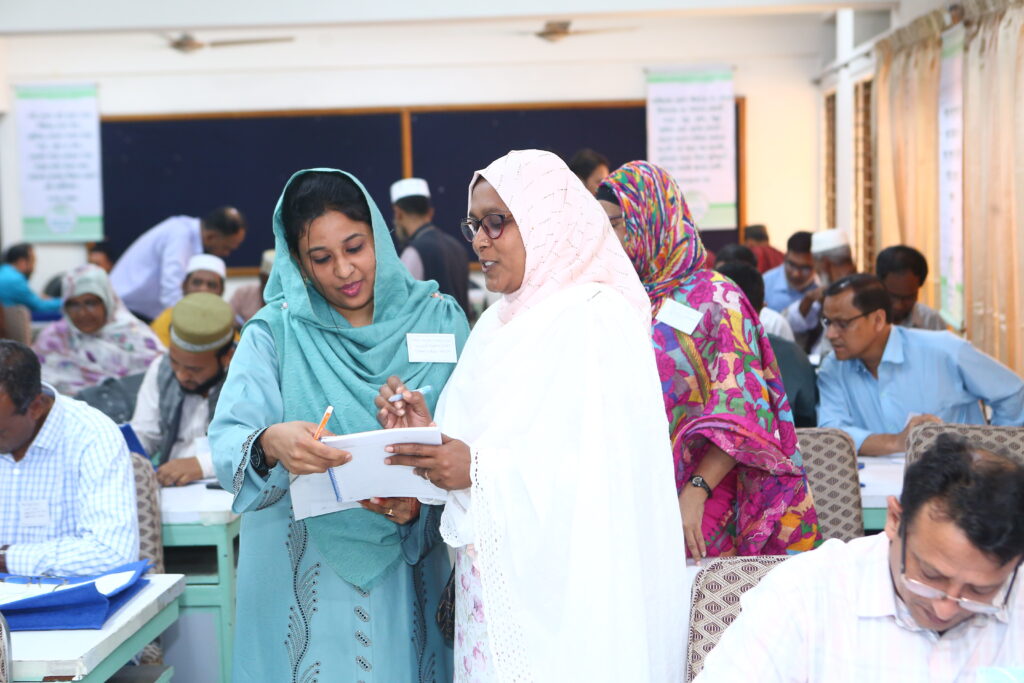
From February 23 to 27, a major step forward was taken in the expansion of ethics education in Bangladesh with the successful completion of the second National Training of Teachers in Dhaka. Organized as part of the Ethics Education Fellowship Program, the five-day immersive workshop brought together 48 teachers from 16 general schools and 8 madrasas, strengthening their capacity to introduce ethics education in their classrooms.
These newly trained educators build on the foundation laid during the program’s first phase, where 20 teachers were trained and are still actively engaged, implementing ethics education activities with their students. With the addition of this new cohort, the program continues to grow in reach and impact. The second phase alone aims to engage 480 new learners, complementing the 200 children reached during the initial phase.
Additionally, more than 21,000 teachers will participate in a 6-hour online learning module as part of a program funded by the World Bank.
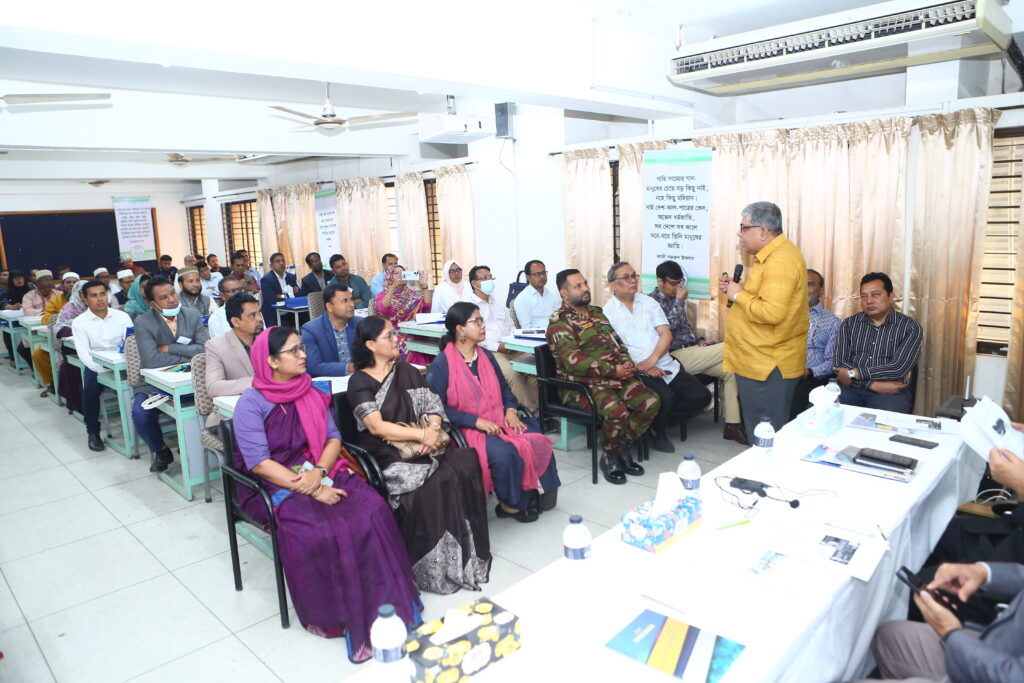
The training was facilitated by a dedicated team of Ethics Education Fellows, who are leading the implementation of the program in the country: Ms. Geetanjali Barua, Mr. Shafiul Alam, Lt. Col. Zonayed Ahmed, and Mr. Joydip Dey.
Throughout the week, participants engaged in dynamic and interactive sessions that focused on designing and facilitating ethics education sessions, applying transformative pedagogical approaches, and creating safe spaces for dialogue. The aim was to strengthen teachers’ capacities to empower students in navigating ethical challenges with confidence, empathy, and understanding.
A highlight of the training was an interfaith learning experience that allowed educators to reflect on ethical values from diverse religious perspectives. At St. Mary’s Cathedral, participants engaged in dialogue with Archbishop Bejoy Nicephorus D’Cruze, exploring key pillars of the Catholic faith, including the Golden Rule: “Do unto others as you would have them do unto you.” They also visited the Ramakrishna Mission in Dhaka, where they delved into the Hindu perspective on interconnectedness and the teacher’s role as a guide who helps remove barriers to learning.
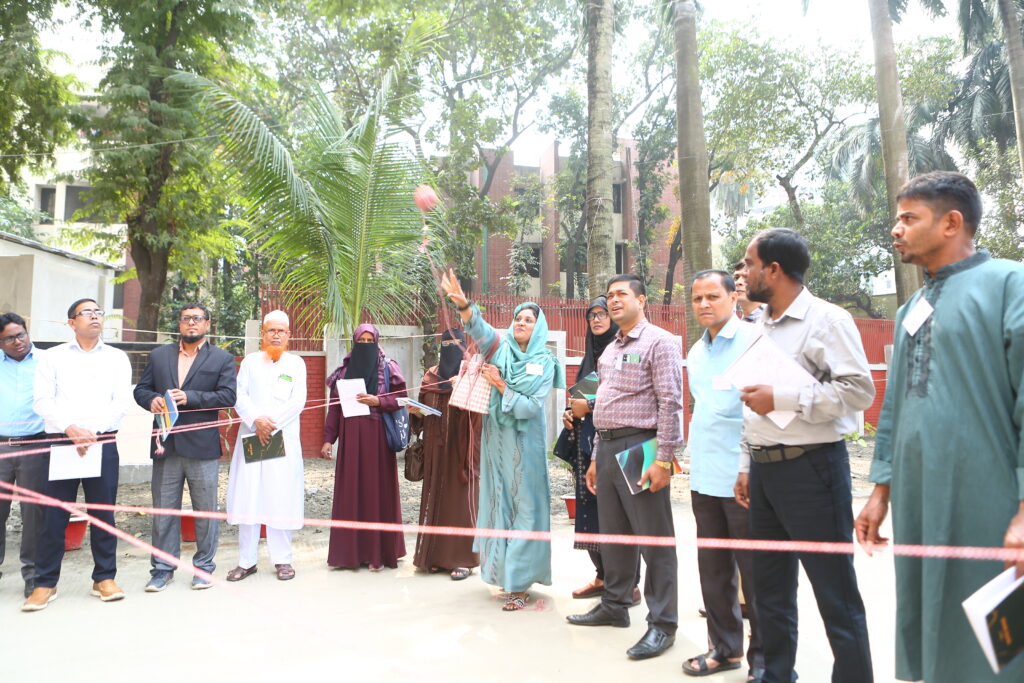
Reflecting on the experience, one participant shared, “I am very happy that a beautiful journey has begun. Just as I will benefit from the learning outcomes of the Ethics Education Training, my students will also be enlightened. I hope that together we will ignite the light in our hearts, and that light will illuminate the world.”
In parallel with the training, Mr. Francisco Vila, Head of Programmes at Arigatou International Geneva, met with several key education leaders to explore the future of ethics education in the country. His meetings with Mr. Hasan Maruf, Additional Secretary for Development at the Ministry of Education; Dr. Muhammad Azad Khan, Director General of the Directorate of Secondary and Higher Education; and Dr. Shafiul Azam, Director of Planning and Development, focused on reviewing the achievements of the first phase of the Fellowship and identifying advocacy opportunities to integrate ethics education into national policy.
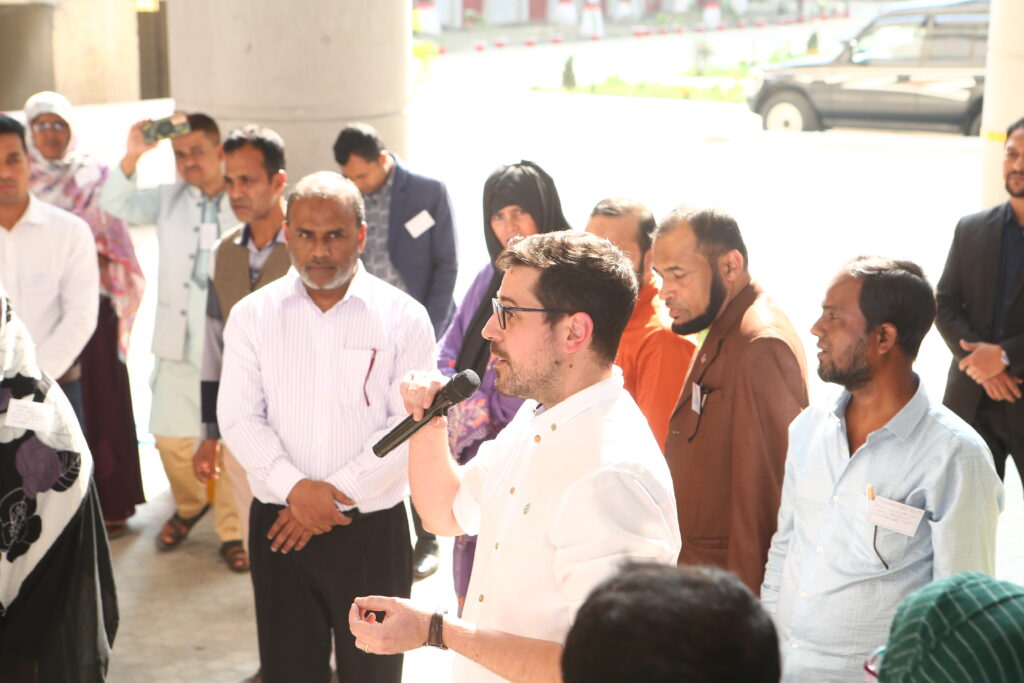
Further discussions with Mr. Abdul Mannan, Director General of the Madrasah Education Directorate, highlighted the deep connection between religious education and ethical practice, and the potential of this program to translate values into concrete action. At the National Academy for Educational Management (NAEM), Director General Dr. Md. Zulfewar Haider and Director of Training Prof. Ferdousi Begum explored ways to integrate ethics education into leadership development for headteachers and proposed new training for Academy staff to incorporate ethics into their existing programs. Meanwhile, Prof. Rejiya Sultana, Principal of the Government Teachers Training College in Dhaka, hosted Mr. Vila on campus and expressed strong interest in embedding ethics education into national teacher training programs.
We thank the Ministry of Education of Bangladesh for its commitment, the participating teachers for their dedication, and the Ethics Education Fellows for their leadership. Together, they are paving the way for more inclusive education in Bangladesh—one that nurtures respectful relationships, encourages dialogue, and empowers children to make a positive impact in their communities.
